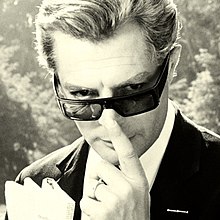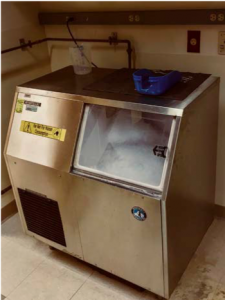At the time of writing, the 2020 London Marathon had not yet been called off because of the COVID-19 pandemic. Nor was the sitter a professor: he was awarded a Chair subsequently in 2020 for his work in epigenetics. Epigenetics means ‘above’ or ‘on top of’ genetics. It refers to processes that modify gene expression but do not change the DNA sequence. Most definitions stipulate that these modifications are heritable (see Vital Conversation).
“I’ve had three lives already,”
he says
fixing me a macchiato freddo.
Coming from “a long tradition of baristas”
he makes a professional brew
despite the modest machine –
a far cry from the bar in Rimini
where his first life began
twirling the baton bestowed
by his Great Grandmother
amongst the fashionistas of the day.
“My hobby was Uni in Bologna.”
He’d have preferred to study architecture
but his mother vetoes the choice,
declaring for medicine –
a nurse herself.
Sadly for her it’s the year
of Dolly the Sheep
and he opts for genetic engineering.
Riding the wave of R&D
provoked by the EU ban on antibiotics,
he writes his thesis on pig nutrition.
His second life is spent
in the realm of Animal Science and
cowboy hats –
Purdue University, Indiana,
where the crew of Apollo 11
chewed the cud later digested
in Zero G.
Its the back of beyond.
But once he’d left
he decides
“it was not a bad place to be”
and returns.
Come mai?
He flashes a Mastroianni grin.

And so
he sashays back to Purdue
and four years of Epigenetics
with a sideline teaching tango
to students and seniors –
milonga not Strictly.
He does a post doc in Michigan –
“scientifically a waste of time” –
as subprime mortgages
leave Lehman Brothers bancarotta.
His third life begins in New Hampshire –
“a bubble of rich hippies.”
He meets his half Sicilian
but “very British” wife
in the Dartmouth Medical School Building
by the ice machine
getting ice for their experiments.
Ten years later, back for a seminar,
he photographs the iconic machine.
“Life histories start always from
the weirdest of places.”

She’s an exchange student
in need of a room,
he has a house.
Ecco fatto!
“First she lodged in my house then in my life,”
he laughs.
Well, not entirely –
first he had to convince her
he wasn’t gay.
He relates this in full lycra –
a sporty invitation to camp.
“It’s the look!” he protests.
“Perception and reality are not the same thing.”
He’s in training for the London Marathon
never run before
though kicks a football.
Beneath the lycra
tattoos lurk.
A lizard-like creature mounts a forearm.
Inked in Indiana
it’s a “doodle” of his own design.
It echoes the aboriginal art of Australia –
a place he might have lived
if it weren’t for arachnophobia
and the offer of London.
On his other forearm
the daughter of Alphonse Mucha gazes
sybil-like.
Draping his left shoulder
Klimt’s Hygeia.
On his back Hokusai’s Wave,
The Fighting Temeraire on his chest.
Terror from behind,
the final port of call ahead –
the body speaks prophetic
to the first time Marathon runner.
In the cramped office
a supersize computer screen surfaces
like a giant turtle,
in back a sticker:
I am a DAD.
His son’s photo is on the wall
under the fauve swirls
from his niece’s paintbrush.
He’s a happy boy,
who can strum Wimoweh on his ukulele –
a mini-me version of Dad’s guitar.
Together they watch Ted cartoons –
Schrödinger’s Cat no challenge
for the quantum world of a two year old.
“It doesn’t matter
what he does as long as he thinks critically,”
he declares.
Then, hearing himself, grimaces
as if Il Dottore had appeared on the scene.
Behind the elegant horn rims
the eyes dance.
The professorial beard
is “the lazy man’s answer to shaving.”
But without the beard,
he reflects,
he’d “feel like a bartender again.”
After six years at Hammersmith Hospital
his fourth life –
Research Professor –
is upon him.
Best not shave.